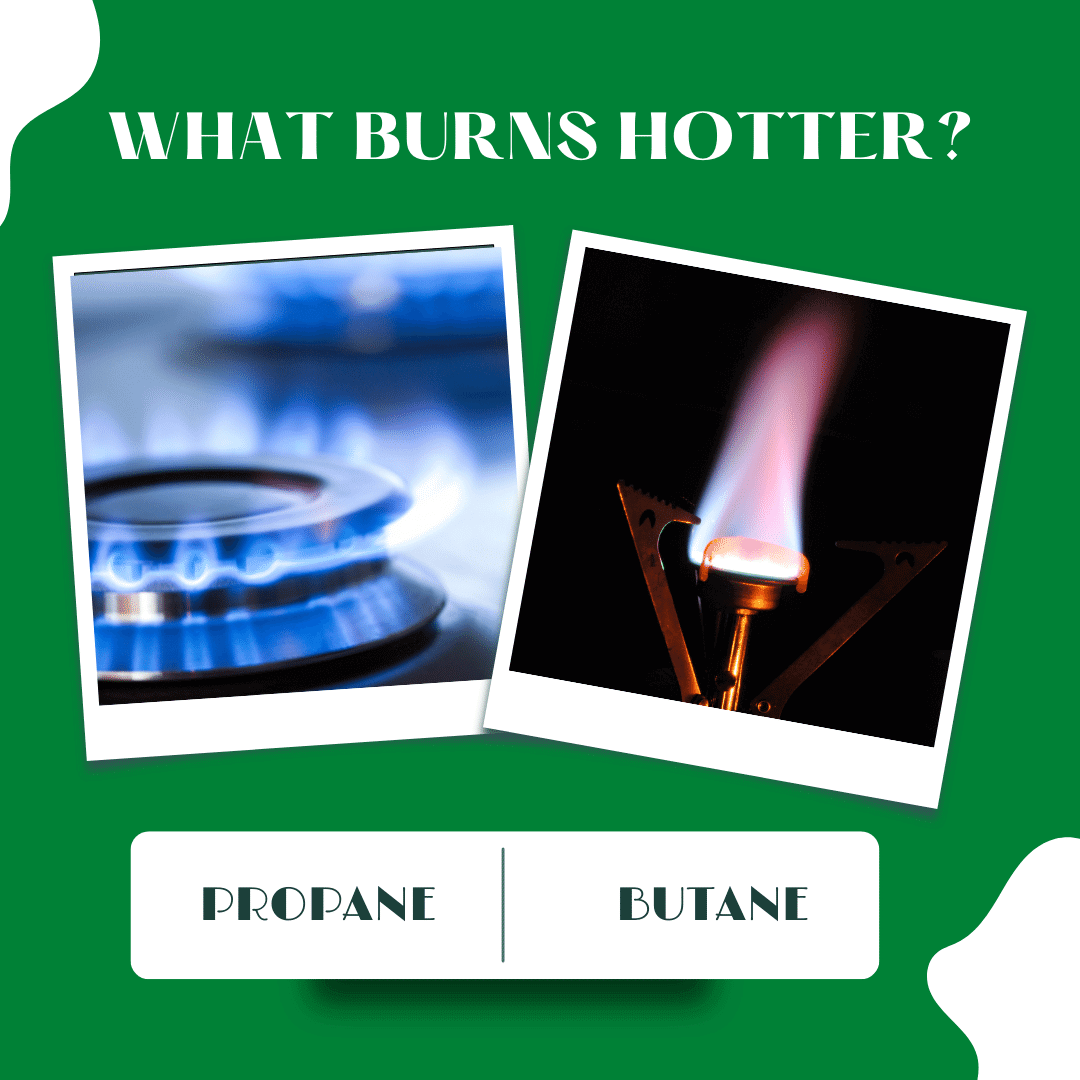As butane and propane are both gases, and both are used for burning. But it is a mystical question which one would burn hotter?
Both propane and butane are the byproduct of natural gases obtained after refining the natural gas. Both are flammable gases. Both are used outdoors and indoors, especially for the camping stove canisters.
But to know the answer to the question, we must understand the features and flame classification of butane and propane. Let us discuss:
Combustion heat of the butane:
Heat combustion is the amount of heat produced during burning. Butane is a gas that is used for burning in lighter, candles and lanterns, etc. As we lit the candle, the flame and then heat will produce. This heat is due to the wax and oxygen chemical reactions. It is usually measured in j/mol. It is the amount of heat produced per mole of the substance.
At ambient pressure and temperature, the isobaic Cp specific heat capacity at a constant pressure of the butane is 1.73kj/kg K. On the other hand, the isochoric Cv specific heat capacity at constant volume is 1.57kj/kg K.
However, the specific heat capacity of Cp and Cv varies with the temperature and the handling conditions in which you are using it. You can also calculate the butane-specific heat constants at different temperatures.
The heat of combustion of the butane is -2878KJ/mol. It means that 2878 amount of heat is produced while burning a substance's mole and released.
Combustion heat of the propane:
The molar combustion heat of propane is -1190.0KJ/mol. It means 1190 amount is released while burning one mole of a substance.
At ambient temperature and pressure, the isobaric specific heat capacity at constant pressure is Cp 1.68KJ/Kg K.
On the other hand, isochoric specific heat capacity at constant volume Cv is 1.48KJ/Kg K. The specific heat is the energy required to raise the temperature by 1K.

Flame temperature of butane and propane:
Butane and propane both are hydrocarbons. And consider the liquefied petroleum gas is used for burning. To estimate the heat potential of both gases, deciding on the butane and the propane flame temperature is necessary.
The flame temperature of the butane is lower, 1315.556 degrees Celsius at a high temperature than the propane, which has a high flame temperature. Propane has a flame temperature of 1982.22 degrees Celsius.
They burn at enough high temperatures that they will cause serious burns if the precautions have not been adopted.
Pros and cons of propane and butane:
If anything has good realities, it will also have some bad aspects. Some of the pros and cons of butane and propane for their good choice are:
As you know, propane burns hotter than butane and produces more carbon monoxide, so it must burn under proper ventilation.
- Butane has a long chain of carbon and hydrogen atoms, so it takes more time to burn. It produces less carbon monoxide and is thus safe for burning.
- Propane has more vapor pressure than butane, so the chances of leakage increase. So people use it by burying it under the ground.
- Propane is heavier than the air and always packed in a container or cylinder, while butane is lighter than the air and always available in spray bottles and small canisters.
So if you want to go on camping with a more lightweight bag pack, butane is better for you than propane.
One gallon of propane costs 1.10$ to 1.15$, whereas the butane gallon costs 1.13$ to 1.18$. In this way, propane is cheaper than butane.
- Propane has high vapor pressure, so its run time is little compared to butane, but it entirely depends upon the BTUs of the stove.
- Butane has a strong odor and produces more smoke which is undesirable sometimes.
- Propane produces more high flame and is not safe for indoor use. Butane is safe for outdoor as well as for indoor purposes.
You can also watch this video about the safe use of propane and butane:
Which produces more heat than the propane?
As propane is a more volatile hydrocarbon, it evaporates more rapidly than butane. It is mostly used for outdoor activities. They are stored in high-pressure tanks and buried under the ground to prevent them from leakage. Due to more volatility, they are used in many appliances like heaters and other cooking equipment.
Propane burning temperature is -44 degrees Celsius and -50 Fahrenheit, so it is used in many appliances. But some other more efficient burning products are acetylene, acetone, and MAPP.

Frequently asked questions:
In which sectors are butane commonly used?
It is commonly used in commercial as well as agriculture. It is also propellant and refrigerant in aerosol and many non-fuel products.
Which gas is safer, propane and butane?
Both gases have no negative impacts on the environment. Both are good sources of energy and burn too easily.
What is the difference between camping and regular use of propane?
Camping and regular propane are nearly identical. But there is a small difference in its availability. Camping propane is present in small cans, while butane is frequently used in big cylinders or canisters.
Which is the hottest fuel for burning in the world?
Acetylene is the hottest fuel in the world. It is more desirable than MAPP, acetone, and propylene.
Conclusion:
Some people have the concept that butane is hotter than propane, or some have the anti-concept of the previous one. Propane burns faster because it is more volatile than butane.
Butane is less flammable and needs to convert into the vapors form before roasting, so it takes time to burn.
So the butane is much hotter than the propane, although the propane has a high energy value per mole than the butane.
But in some aspects, butane is better than propane, and in some ways, propane is good than butane. So entirely it's upon you what you want to choose.


